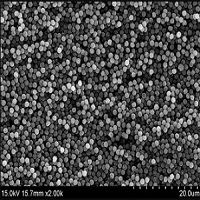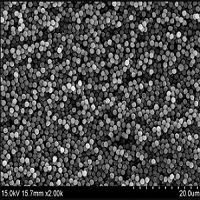The Impressive Non-functionalized Or Carboxyl Polystyrene Microparticles

PMMA microspheres and polystyrene microparticles are very chemically stable. They are resistant to numerous solvents, acids, as well as bases. This makes them useful for experimentation over very broad conditions. This stability ensures that particles do not break down or react with sample constituents; therefore, the integrity of results will not be compromised. Mechanical stability is very high in both, meaning they are quite rugged and less likely to break under stress. Are you someone who wants to gather more facts about the Poly(Methyl Methacrylate) Microspheres, Non-functionalized or carboxyl polystyrene microparticles? If Yes. This is the best place where people can gather more facts about the Poly(Methyl Methacrylate) Microspheres, Non-functionalized or carboxyl polystyrene microparticles.
Applications Versatility
The PMMA microspheres and Poly(Methyl Methacrylate) Microspheres are versatile, and thus useful in a wide scope of applications. These include drug delivery, diagnostic assays, chromatography, and material science. In the biomedical field, they are often used as carriers for controlled drug release, while in diagnostics, they serve as substrates for enzyme-linked immune sorbent assays or flow cytometry. The utility of these microparticles makes them important in different analytical and industrial processes for applications ranging from research to practical applications.
Such microspheres made of PMMA and non-functionalized or carboxyl polystyrene microparticles are generally biocompatible. Thus, they are safer for applications in the biological system. Since they are inert in nature, they do not contain much toxicity, especially in biomedical applications like drug delivery and tissue engineering. Such biocompatibility ensures that they can be used safely in medical devices or as a diagnostic tool in the hands of patients users without any kind of adverse reaction.
PMMA microspheres and non-functionalized or carboxyl polystyrene microparticles are flexible materials that facilitate adjustment and homogeneity via various chemical treatment procedures or where their chemical stability and biocompatibility ensure proper usage in modern research, diagnostics, and industrial applications, hence playing a pivotal role in attaining accurate, reliable, and reproducible results in the scientific arena in general.




